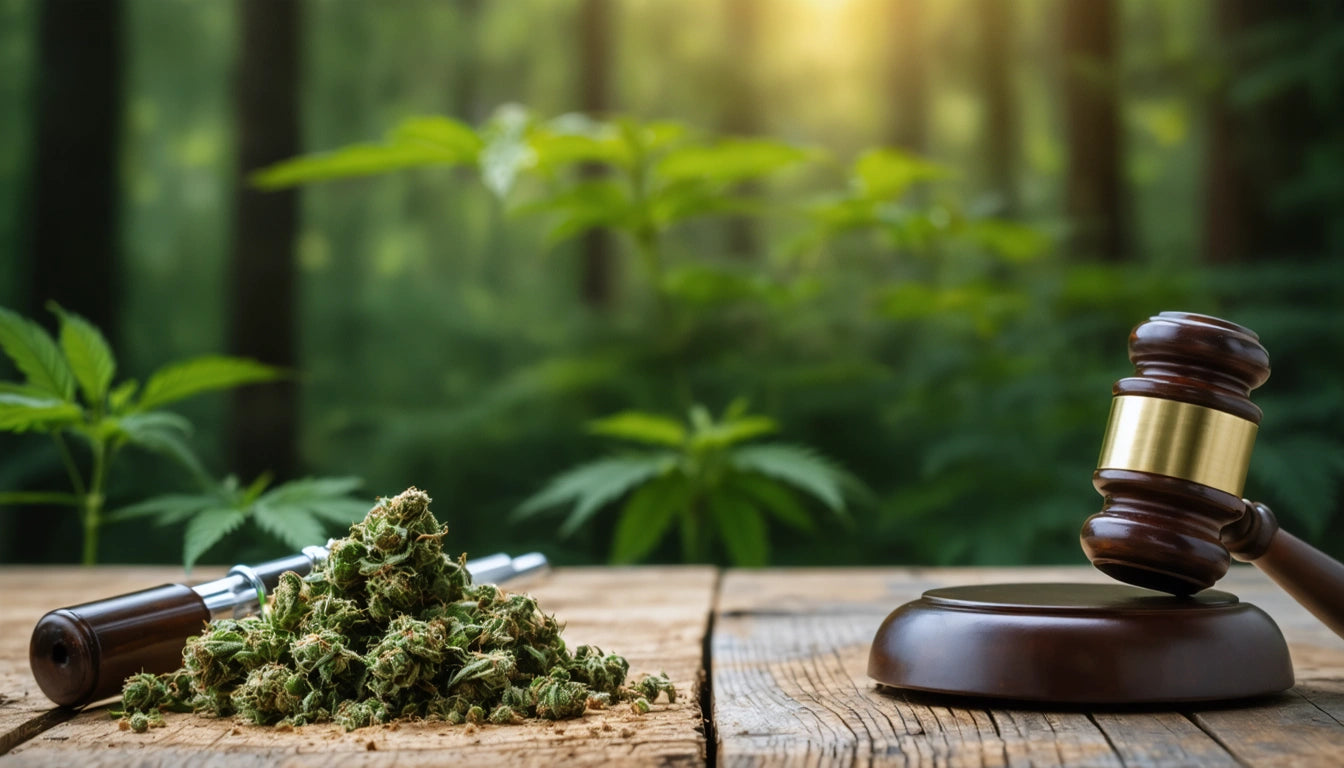The Legal Status and Future of Medical and Recreational Cannabis in Alabama and Mississippi
The southeastern United States has historically maintained strict cannabis prohibitions, but recent legislative changes have begun to shift the landscape. Alabama and Mississippi have taken steps toward limited medical cannabis programs while maintaining restrictions on recreational use. Understanding the current legal framework and future possibilities helps patients, businesses, and advocates navigate these evolving markets.
Current Legal Status in Alabama
So, does Alabama have medical weed? Yes, but with significant limitations. In May 2021, Alabama became the 37th state to legalize medical cannabis when Governor Kay Ivey signed the Darren Wesley 'Ato' Hall Compassion Act (SB 46) into law. This established a regulated medical cannabis program overseen by the Alabama Medical Cannabis Commission (AMCC).
However, Alabama does not have recreational weed. Recreational cannabis remains fully illegal, with possession of any amount for non-medical purposes classified as a misdemeanor or felony, depending on quantity and intent.
The state's medical program has faced implementation delays, with patient access originally expected in 2023 but pushed to 2024 due to regulatory and licensing challenges.
Qualifying Conditions for Medical Cannabis in Alabama
What are the 15 conditions for medical marijuanas in Alabama? The law specifies these qualifying conditions:
- Autism Spectrum Disorder
- Cancer-related pain, nausea, or weight loss
- Crohn's Disease
- Depression
- Epilepsy or conditions causing seizures
- HIV/AIDS-related nausea or weight loss
- Panic disorder
- Parkinson's Disease
- Persistent nausea
- Post-Traumatic Stress Disorder (PTSD)
- Sickle Cell Anemia
- Spasticity associated with Multiple Sclerosis or spinal cord injury
- Terminal illness
- Tourette's Syndrome
- Chronic pain where conventional therapies have failed
Patients must obtain certification from a qualified physician who has completed specific training on medical cannabis. The certification is then submitted with an application to the AMCC for a medical cannabis card.
Mississippi Cannabis Laws
Does Mississippi have recreational weed? No, recreational cannabis remains illegal in Mississippi. However, the state has implemented a medical cannabis program following the passage of Initiative 65 in November 2020, which was later invalidated by the state Supreme Court. In response to public demand, the legislature passed the Mississippi Medical Cannabis Act in January 2022.
Does Mississippi have legal weed in any form? Yes, but only for qualifying medical patients. The state's program began accepting patient applications in June 2022, with sales launching in January 2023. Unlike Alabama, Mississippi's program is already operational.
Mississippi's qualifying conditions include cancer, Parkinson's disease, Huntington's disease, muscular dystrophy, glaucoma, spastic quadriplegia, HIV, AIDS, hepatitis, ALS, Crohn's disease, ulcerative colitis, sickle cell anemia, Alzheimer's disease, agitation of dementia, PTSD, autism, pain refractory to opioid management, diabetic/peripheral neuropathy, spinal cord disease or severe injury, and similar conditions.
Cultivation and Possession Limits
Can you grow cannabis in Alabama? No, home cultivation is not permitted under Alabama's medical cannabis law. All cannabis products must be purchased from licensed dispensaries. Patients can possess up to 70 daily dosages at once, with each daily dosage capped at 50mg of THC, except in specific circumstances where physicians may recommend higher dosages.
In Mississippi, home cultivation is also prohibited. Medical cannabis patients may purchase up to 3.5 grams of cannabis flower or 1 gram of concentrate per day, not to exceed 3 ounces of flower per month. When considering storage solutions for these purchases, many dispensaries utilize specialized packaging for 3.5-gram quantities, which helps maintain product freshness while ensuring compliance with state regulations.
Product Types and Restrictions
Are edibles legal in Alabama? Yes, but with restrictions. Alabama's medical cannabis law permits:
- Tablets, capsules, and tinctures
- Gels, oils, creams, and other topical preparations
- Suppositories, transdermal patches, nebulizers, and inhalers
- Oral or topical liquids or oils for use in vaporizers
Notably, raw plant material, smoking, vaping of dry herb, and traditional food-based edibles are prohibited. This contrasts with other states where weed is legal in more forms.
Mississippi allows medical cannabis in the form of flower, extracts, tinctures, and edibles. Smoking and vaping are permitted, giving patients more options than in Alabama.
Legalization Timeline and Future Outlook
When will weed be legal in Alabama for recreational use? While no definitive timeline exists, several factors suggest recreational legalization remains years away. Alabama has traditionally been conservative on cannabis policy, and the medical program itself has faced implementation delays.
When will pot be legal in Alabama more broadly? Political analysts suggest that Alabama is likely to follow federal changes rather than lead state-level reform. Without significant shifts in state legislature composition or federal policy, recreational legalization may not occur before the latter half of this decade.
Mississippi faces similar challenges, though its operational medical program suggests it may be slightly ahead in the regulatory learning curve. Both states are watching developments in neighboring southern states like Georgia and Iowa while monitoring the progression of recreational legalization across the country.
For businesses and entrepreneurs, preparation for eventual market expansion involves staying informed about regulatory developments and building relationships with medical market participants. As seen in other states that transitioned from medical to recreational programs, early medical market entrants often gain advantages when markets expand.











Leave a comment
All comments are moderated before being published.
This site is protected by hCaptcha and the hCaptcha Privacy Policy and Terms of Service apply.